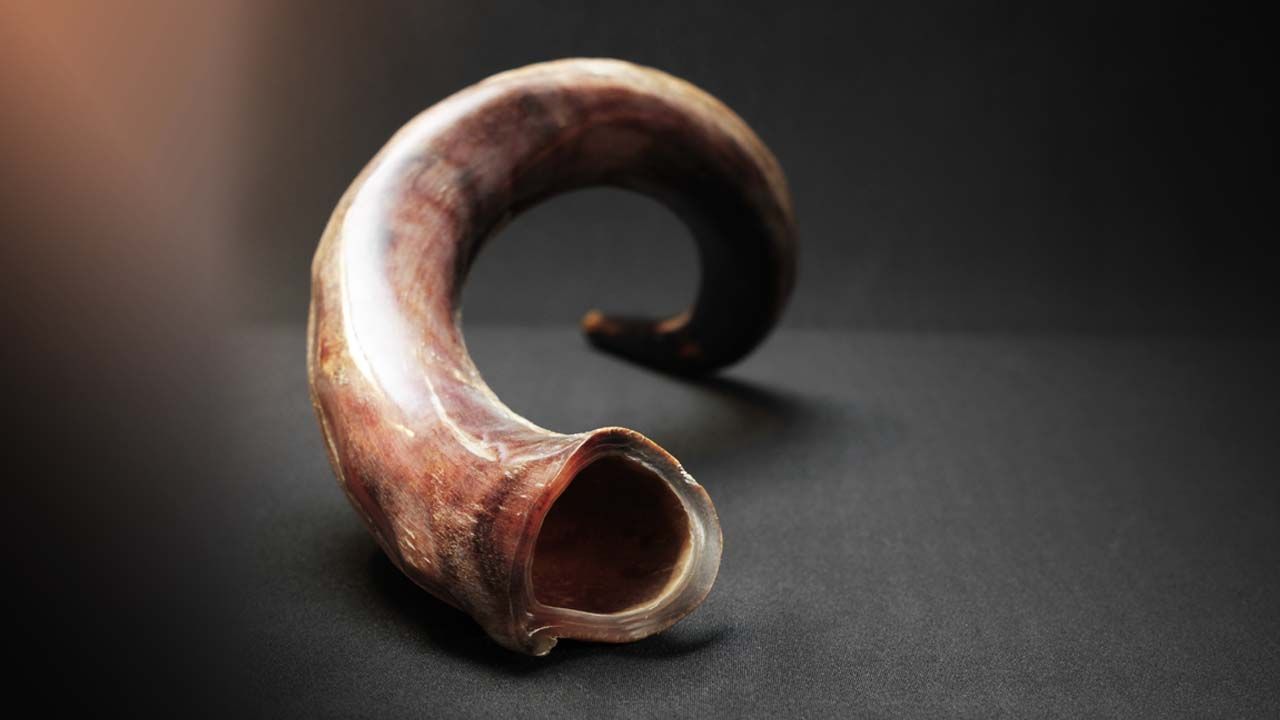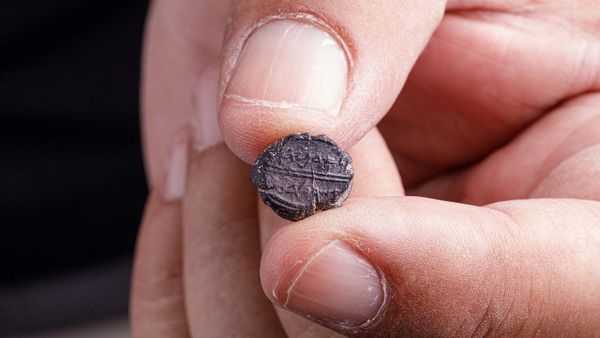If you don't know what shofar is, don't feel bad. It's an obscure item, a ritual instrument, and its name comes from ancient Hebrew. It is a special trumpet used in Jewish holiday observance, connected to the Jewish new year and Day of Atonement (Lev 23:24). In most cases, the Hebrew term shofar (שׁוֹפָר) refers to a trumpet made from an animal horn. Since antiquity, Jews took hollow horns, cleaned them out, and used them to make trumpets. They were used for all sorts of purposes in the past, but today are used exclusively for spiritual reasons.
The sound that a hollowed-out horn makes may not be brilliant or even clear. But the reason the shofars are blasted is not purely musical either. It is the spiritual meaning that accompanies the sound of such a horn that is truly important. I will share three examples from Israel's history where the shofar comes up, and hopefully, you will see why the sound continues to be spiritually significant even today. Consider the following verses from Torah.
16 On the third day in the morning there was thunder and lightning and a dense cloud on the mountain, and the sound of a very loud horn; all the people who were in the camp trembled. 17 Moses brought the people out of the camp to meet God, and they took their place at the foot of the mountain. 18 Now Mount Sinai was completely covered with smoke because the Lord had descended on it in fire, and its smoke went up like the smoke of a great furnace, and the whole mountain shook violently. 19 When the sound of the horn grew louder and louder, Moses was speaking and God was answering him with a voice. (Ex 19: 16-20 NET)
The special moment of the most enchanting and terrifying encounter with God, an encounter of the holy by a numerous multitude at Horev was accompanied by the sound of the shofar. The thunder, the lightning, the divine revelation to Israel, and the giving of the commandments are all forever fused with the sound of the shofar that accompanied that moment. Who sounded the horn then? Not Israelites themselves. For Jews, the notes of the shofar beckon to that time and to that moment of standing at the foot of Mount Sinai. That's why the shofar is special. Its sound connects modern generations to their ancient heritage.

Another powerful image tied to shofar in Jewish worship is the Akedah, the story of the binding of Isaac. In Genesis, Abraham was tested by God in a most unusual way. A man of very advanced age was asked to offer up his only son of promise as a sacrifice, as a sign of his complete devotion to the LORD. When Abraham was about to carry out God's instruction, he was stopped and told to sacrifice a ram caught in a nearby bush instead. And his did. Ram's horn shofars are most common, in part because of this ancient story.
13 Abraham looked up and saw behind him a ram caught in the bushes by its horns. So he went over and got the ram and offered it up as a burnt offering instead of his son. 14 And Abraham called the name of that place “The Lord provides.” It is said to this day, “In the mountain of the Lord provision will be made.” (Gen 22:13-14 NET)
The ram became an offering instead of Abraham's son Isaac. And from Isaac came Jacob and from him the twelve tribes of Israel. The shofar is a symbol of pure devotion and obedience to the great ancestor of Israel. Its sound reminds Abraham's heirs of the great miracles of the past and the closeness of Hashem to his people. When it sounds many Jews remember this story of an extraordinary test Abraham passed. The sound of shofar reminds people how they must trust God in the face of any circumstances.
Another spiritual dimension the shofar sound evokes is victory through divine presence. As Joshua was given the charge of conquering the cities of Canaan, he was told to follow an unusual practice to bring down the walls of Jericho. The priests were to march around the city and blow the horns and the city, and the walls would collapse.
20 The rams’ horns sounded, and when the army heard the signal, they gave a loud battle cry. The wall collapsed, and the warriors charged straight ahead into the city and captured it. (Joshua 6:20 NET)
Israelites were not an army of trained warriors, yet through the divine presence and their obedience, they were assured a certain victory over people mightier than they. Even the walls of fortified cities came down as the sounds of shofars pierced the air. The sound of shofar can be synonymous with victory and miraculous success with God's presence, with divine provision. No wonder the hollowed-out horn serves a spiritual purpose even today. Its simple, unpolished sound carries the deep spiritual significance of knowing God and walking with him, and ties modern Jews to the faith of their forefathers.












Member discussion